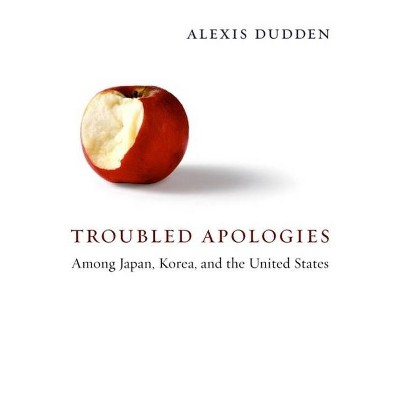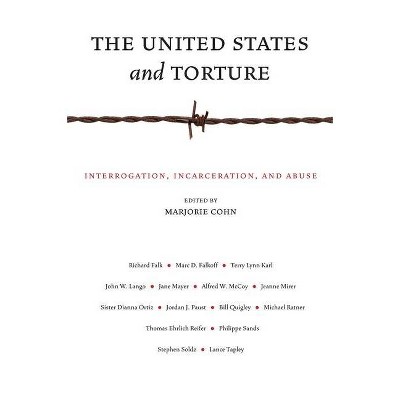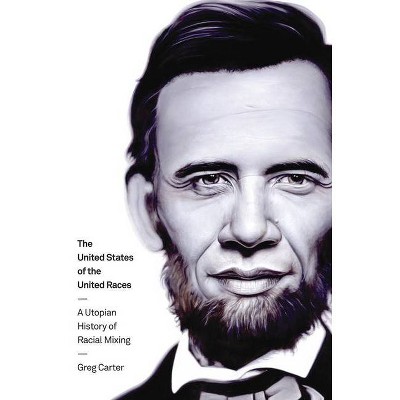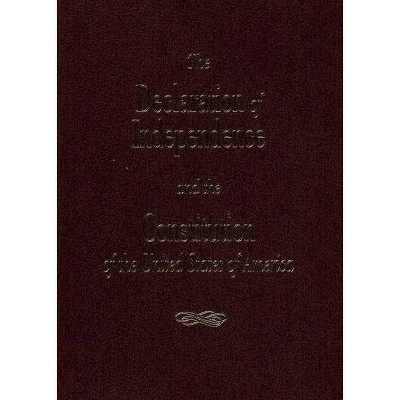Troubled Apologies Among Japan, Korea, and the United States - by Alexis Dudden (Paperback)

Similar Products
Products of same category from the store
AllProduct info
<p/><br></br><p><b> About the Book </b></p></br></br><p>Apologizing for history has become a standard feature of the international political scene, and interrogating this process is crucial to understanding the value of the political apology to the state. When governments apologize for past crimes, they take away the substance of apology that victims originally wanted for themselves. They rob victims of the dignity they seek while affording the state a new means with which to legitimize itself.</p><p>Examining the interplay between political apology and apologetic history, Alexis Dudden focuses on the problematic relationship binding Japanese imperialism, South Korean state building, and American power in Asia. She examines this history through diplomatic, cultural, and social considerations in the postwar era and argues that the process of apology has created a knot from which none of these countries can escape without undoing decades of mythmaking.</p><p/><br></br><p><b> Book Synopsis </b></p></br></br><p>Whether it's the Vatican addressing its role in the Second World War or the United States atoning for its treatment of native Hawai'ian islanders, apologizing for history has become a standard feature of the international political scene. As Alexis Dudden makes clear, interrogating this process is crucial to understanding the value of the political apology to the state. When governments apologize for past crimes, they take away the substance of apology that victims originally wanted for themselves. They rob victims of the dignity they seek while affording the state a new means with which to legitimize itself.</p><p>Examining the interplay between political apology and apologetic history, Dudden focuses on the problematic relationship binding Japanese imperialism, South Korean state building, and American power in Asia. She examines this history through diplomatic, cultural, and social considerations in the postwar era and argues that the process of apology has created a knot from which none of these countries can escape without undoing decades of mythmaking.</p><p/><br></br><p><b> Review Quotes </b></p></br></br><br>Richly and eloquently written.... Recommended.--Choice<br><br>A significant contribution on the issue of historical apologies... This book should be required reading.--Matthew Penney "Pacific Affairs "<br><br>Dudden engagingly explores how the nexus of politics, war memory, and apology shapes contemporary trilateral relations between Korea, Japan, and the United States.--Jeff Kingston "Japan Times "<br><br>Dudden traces the intricacies and ironies of history in Northeast Asia in a compelling narrative that indicts many governments and political figures in the process, providing essential reading for anyone wishing to learn more about these complex issues.--Elizabeth S. Dahl "ID: International Dialogue "<br><br>Rich with insights... for specialists, for twentieth-century historians, and for general readers interested in a deeper understanding of the politics of history.--Sarah Kovner, University of Florida "Journal of World History "<br><p/><br></br><p><b> About the Author </b></p></br></br>Alexis Dudden is professor of history at the University of Connecticut. She has written extensively on Japan's international relations and is also author of <i>Japan's Colonization of Korea: Discourse and Power</i>.
Price History
Price Archive shows prices from various stores, lets you see history and find the cheapest. There is no actual sale on the website. For all support, inquiry and suggestion messages communication@pricearchive.us




















